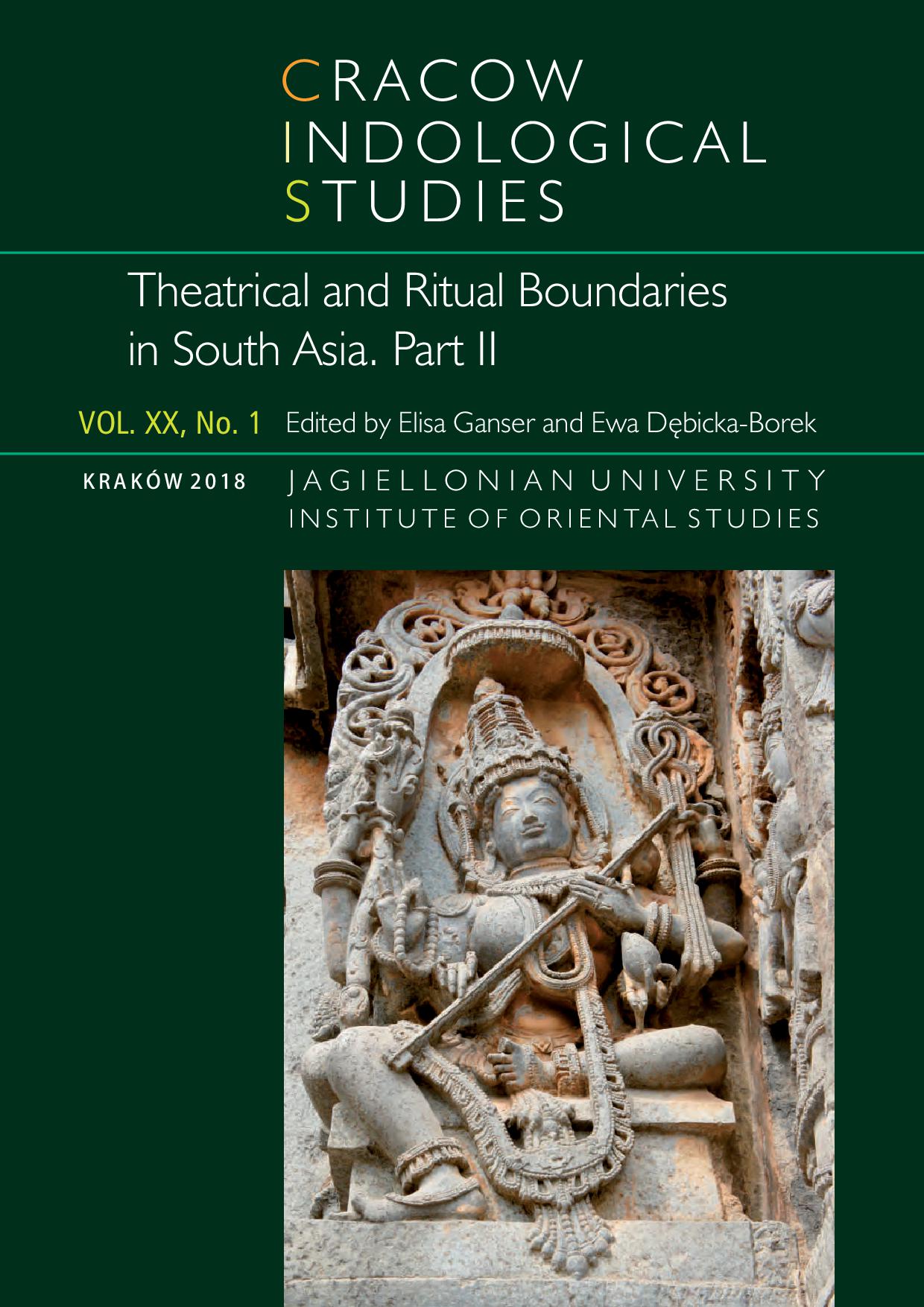Alterity and Poetry. The Ṛgveda and the Invention of Indian Theatre
Alterity and Poetry. The Ṛgveda and the Invention of Indian Theatre
Author(s): Silvia D’IntinoSubject(s): Sociology of Art, Sociology of Religion
Published by: KSIĘGARNIA AKADEMICKA Sp. z o.o.
Keywords: Ṛgveda; Vasiṣṭha; Varuṇa; dialogue; alterity; persona; character
Summary/Abstract: Ancient Indian literature, poetry and prose, shows different forms of dialogue that have been regarded as the first vestiges of a dramatic art in India. In the Ṛgveda, dialogue appears to be more than a genre, what gives a fundamental structure to the hymns. The study of the ṛṣis’ style and the formal peculiarities of Vedic poetry may shed light on a deep filiation. Among these peculiarities, we will focus on the use of personal pronouns, namely the first person singular. In a small group of Varuṇa hymns attributed to Vasiṣṭha (ṚV VII 86–89), the remarkable conception of the speaking ‘I’, different from the poet himself, different from the lyric ‘I’, sheds light on the distancing effect operated by the Vedic poet, on the difference between subject and persona as a main feature of his art, thus anticipating the emergence of the character, and secretly contributing to the invention of theatre in ancient India.
Journal: Cracow Indological Studies
- Issue Year: 20/2018
- Issue No: 1
- Page Range: 69-89
- Page Count: 21
- Language: English

